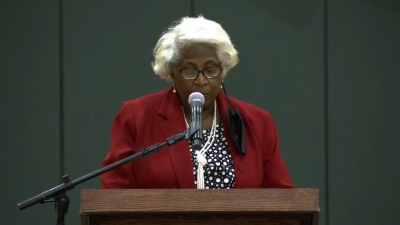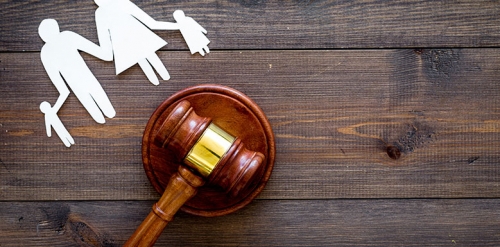Federal Civil Rights Lawsuit Aims to Strike Amendment “Born in Bigotry” from SC Constitution
The Bishop of the Catholic Diocese of Charleston along with thirty-three South Carolina independent K-12 schools announced the filing of a civil rights lawsuit today asking a federal court to strike down Article XI, Section 4 of the South Carolina Constitution of 1895, a provision known as a “Blaine Amendment.”
The Diocese is joined in the lawsuit by the South Carolina Independent Colleges and Universities (SCICU), which represents 20 of the state’s institutions of higher education including five Historically Black Colleges and Universities (HBCUs).
According to the coalition’s brief, the “no-aid” or “Blaine” Amendment that bans direct state support for independent schools was “born in racial and religious bigotry” under the Benjamin Tillman regime in South Carolina (1895) and under “close scrutiny” by a federal court will be found to be in violation of basic civil rights guaranteed by the federal constitution. The federal constitution supersedes state constitutions.
Favorable action by a federal court would have the effect of restoring eligibility for federal COVID relief funds to students in denominationally-supported Historically Black Colleges and Universities (HBCUs), other faith-based colleges, and religiously-affiliated K-12 independent schools.
A decision could also provide significant precedent to challenge the bigotry of Blaine Amendments nationwide.
At the press conference, school leaders school leaders spoke in support of the lawsuit.
“It is sad that our politicians and special interest groups would use an outdated, discriminatory law that I see as a racist document that would deny our students access to the quality education they desire and deserve,” said Delores Gilliard, Principal of St. Martin de Porres Catholic School in Columbia.

“These children, whom we serve, are our future, and deserve all we have to give for their success.”
The suit announced today, Bishop of Charleston v. Adams, is being brought with assistance from the Liberty Justice Center, a national public interest law firm that fights for constitutional rights and educational opportunity.
The Liberty Justice Center worked with Palmetto Promise Institute last summer during the legal battle over SAFE Grants, a $32 million scholarship program by Governor Henry McMaster for low-income students impacted by COVID to attend a school of their choice. At the time, over 15,000 families expressed interest in the SAFE Grants program.
“More than 100 years ago, when the current South Carolina Constitution was drafted, a provision was included that is still being weaponized against religious colleges and independent schools in the Palmetto State today,” said Daniel Suhr, Senior Attorney for the Liberty Justice Center.
“In the wake of the transformative Espinoza decision by the Supreme Court of the United States (2020) that rejected bigoted Blaine Amendments, we are confident about our chances in federal court on behalf of private college and independent school students who desperately need relief, but aren’t getting it just because they chose a religious school.”
According to Palmetto Promise Institute’s Dr. Oran Smith, “‘Pitchfork’ Ben Tillman thought his 1895 constitution would be permanent, and it nearly has been. Tillman didn’t like Catholics working to assist South Carolina’s African American citizens compete for jobs with whites. That blend of racism and religious bigotry was the motivation behind his version of the South Carolina Blaine Amendment and it has got to go.”
The named defendants in the suit are Marcia Adams, the Director of the State Department of Administration; Brian Gaines, the Budget Director for the State Department of Administration; and Governor Henry McMaster, all of whose hands have been tied by the South Carolina Supreme Court’s expansive decision in the Adams v. McMaster battle over the SAFE Grants program.
In Adams v. McMaster (brought by Thomesena Adams, no relation to Marcia Adams), South Carolina’s high court ruled that Governor McMaster’s use of discretionary federal dollars provided by Congress constituted “direct support” for independent schools, and thus violated the State Constitution’s Blaine provision.
The practical effect of the SC Supreme Court’s ruling has been to allow every other type of non-profit to be eligible to receive emergency COVID relief, including churches, while effectively shutting out independent schools and universities, simply by virtue of the fact that they deliver education services. This discrimination has extended beyond the Governor’s GEER fund allocations, to include funds duly appropriated by the General Assembly specifically to reimburse private institutions of higher education for COVID-related expenses.
Governor McMaster’s office also weighed in following the filing of the lawsuit. “Governor McMaster believes that private, parochial and independent schools provide many working or low-income parents the option to choose the type of education environment and instruction that best suits their child’s unique needs. Even in the best of economies, many of these parents struggle to scrape together enough money to pay their child’s tuition,” governor’s office Communications Director Brian Symmes said, “Nobody fought the SAFE grants lawsuit more vigorously than the governor did, and he still believes it was incorrectly decided. Every step of the way, the governor warned that the lawsuit could have far-reaching consequences and unnecessarily prevent these schools and parents from accessing emergency federal funds.”
At the press conference, Daniel Suhr with the Liberty Justice Center noted, “This lawsuit is not just about the past. It’s about the future. This is about making South Carolina today a land of equality and opportunity for all of its citizens regardless of their race, religion, or creed,” he said, “The civil rights movement you read about in your textbooks is not over.”
“This lawsuit is not simply about SAFE Grants. It’s about equity, inclusion, and justice,” The Most Rev. Robert E. Guglielmone, Bishop of Charleston emphasized. “We’re proud to stand with our partners in this suit to condemn the past and to make our future stronger and brighter.”






